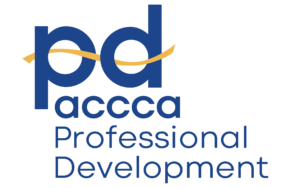
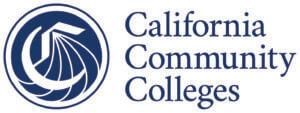
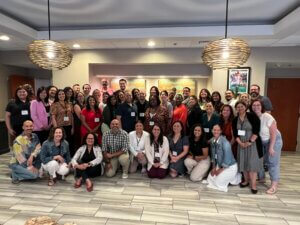
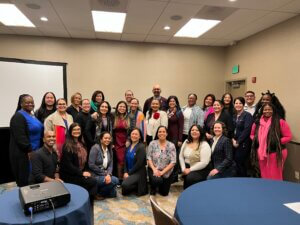
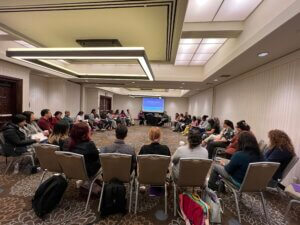
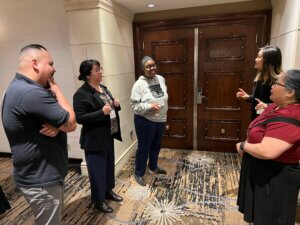
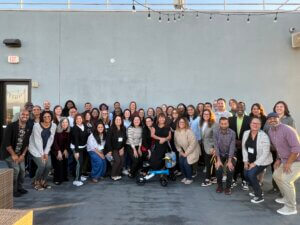
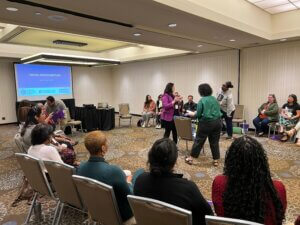
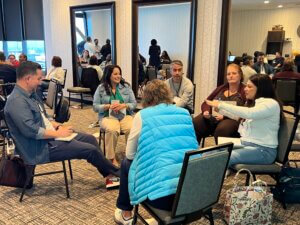
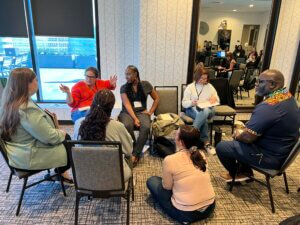
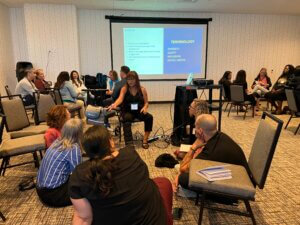
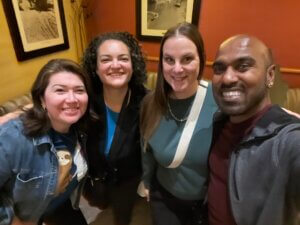
The mission of the SJCA Institute is to provide a practitioner’s and educator’s grounding in social justice and identity training that is paired with strategies, development and the establishment of a peer network, aimed at career advancement and growing equity-based institutional effectiveness across the system.
The program’s content is focused on the individual’s understanding and development of their own identity, and strategies for impacting anti-racist and socially just structures through constructive management practices that will be replicated throughout community colleges in California.
The Institute is the result of a collaboration between the California Community College Chancellor’s Office and ACCCA. The goal of this effort is to directly support the Diversity, Equity, Inclusion and Accessibility [DEIA] focus of the Vision 2030, by assisting in the development of administrators who foster more equitable and diverse institutional practices at their campuses within the California community college system.
WHO?
The program is targeted to historically excluded constituencies [meaning marginalized groups inclusive of race/ethnicity, indigenous status, ability/disability, gender and sexual orientation] and the ally community that supports them.
It will be open to those within that spectrum who are seeking a deeper understanding of, and expanded engagement in Diversity, Equity, Inclusion and Accessibility environments, including those requiring a better understanding of the scope of integrating established social justice standards into institutional structures.
Special consideration will be given to those who currently work directly with students, and also for those working in positions having a potential to impact campus culture, or who occupy other spheres of influence with the campus community or at the state level.
PROGRAM FEES
- The SJCA Institute fees are $1,300 which includes program content, materials and virtual workshops.
- All participants are required to attend the in-person Academy and all virtual workshops in order to graduate from the program.
- Participants are responsible for hotel accommodations and travel to the in-person Academy.
SCHOLARSHIPS
To ensure this program is accessible to all interested applicants, three full scholarships will be given to participants and selected from the application pool. The scholarship will cover the program fee ($1,300). Participants are responsible for hotel accommodations and any other travel expenses.
INSTITUTE COMPONENTS
A 4-day residency will be facilitated that is focused on social justice theories, practices, and the exploration of individual and intersectional identities. Participants will develop a shared language as the cohort moves forward to begin this collective experience.
While other ACCCA programs incorporate DEIA themes, the SJCA Institute is grounded in these principles, and they form the core of our content which also includes a deep exploration of personal identities and engagement strategies.
By exploring individual, interpersonal and systemic level barriers, as well as the opportunities and strategies that exist, the cohort will be equipped to envision how and where they want to be as exemplary leaders.
At the Academy the cohort will explore concepts of power, privilege, access and impact through various large and small-group sessions facilitated by nationally recognized trainers. By fostering a network of diverse colleagues across the state, the Institute seeks to further the Vision 2030 goals by investing in individual leaders whose work will have a ripple effect on students and other campus constituents.
The institute also aligns with similar equity-driven programs by other organizations, yet it differs by gathering a diverse and intersectional cohort to engage in inter-community conversations, intra community building, and awareness of other system-wide resources available. Specifically, participants will have the opportunity to connect with other identity-based organizations serving the California Community College system and find ways to support their individual and intersectional identities as they do the work ahead.
Following the Academy, cohort participants will engage in 6 independent, monthly workshops and trainings that are facilitated primarily virtually, and focus on the individual’s career advancement within the strategies and practical applications of socially just administrative practices [i.e., skills assessment, resume development, job search techniques, mock interviews] in the context of successfully performing within systems and working through existing structures to improve practices through an equity lens.
In addition to the two elements of the 2024 Institute, development is underway on a third component that will provide the opportunity for cohort participants to continue to engage and grow as mentors by coaching future cohort participants.
The peer mentoring/coaching component [DIAL a Colleague] is now being designed and is estimated to be added to the Institute in year 3 of the pilot program. It will allow selected cohort participants who have participated in years 1 and 2 to access further development by engaging as a mentor or coach to year 3 participants.
By sharing their earned wisdom and lived experiences, and guiding future participants through their cohort journey, these mentors can actively participate in building and sustaining a strong leadership pipeline within the system.
Once incorporated into the Institute in year 3, this element will feature training and guidance sessions to ensure standardization and alignment with program outcomes.
- Participants will explore and gain confidence in mastering dialogue skills in sensitive conversations around identity, bias, power, privilege, and their intersections.
- Participants will explore trauma-informed care principles that center healing, wellness, and self-care around marginalized identities.
- Participants will gain skills in recruiting, supporting, retaining, and developing historically excluded [meaning marginalized groups based on race/ethnicity, indigenous status, ability/disability, gender and sexual orientation] job candidates for success in their careers.
- Participants will develop the ability to successfully navigate their next steps professionally while nurturing practices that will scale across their institutions. This skill development can be applied to achieve higher levels of responsibility and professional success in their careers within the California community colleges.
- Participants will gain increased levels of confidence and a sense of belongingness, inclusion, and support across communities and in their career pathway as they help to create transformational change system-wide. Their confidence will further ensure they share their experiences and knowledge with others and elevate others to develop self-awareness of dominant and marginalized identities and how they intersect to create unique leadership styles and opportunities.
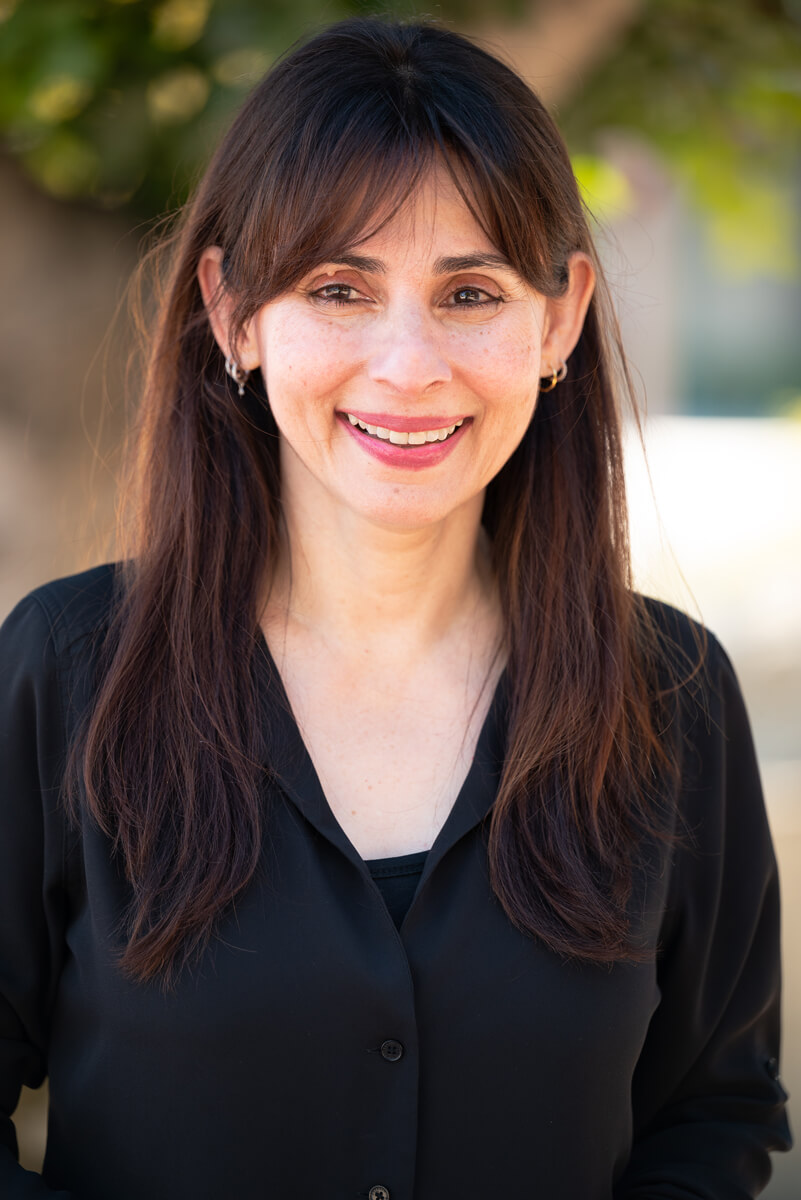
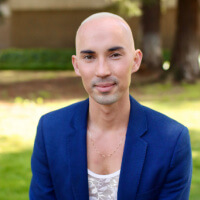
Program Leads

Raja Bhattar
Program Manager
ACCCA
Team Members

Tre’Shawn Hall-Baker
Dean, Human Resources
Santa Monica College
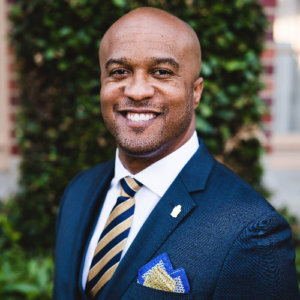
Ajani M. Byrd
Dean of Institutional Equity, Diversity, & Inclusion
Foothill College
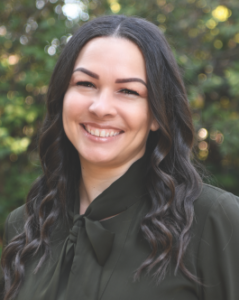
Lonita Cordova
Assistant Superintendent/Vice President, Student Services
San Joaquin Delta College
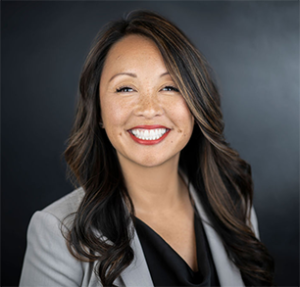
Tammeil Gilkerson
Chancellor
Peralta CCD
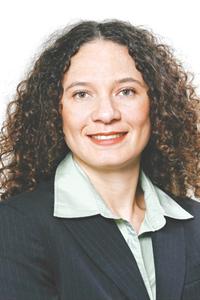
Gita Runkle
Dean, Career Education
Long Beach City College


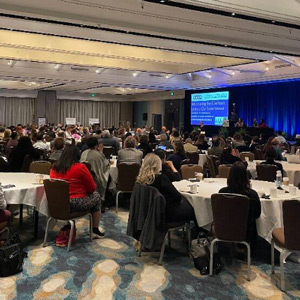
 ACCCA provides California Administrators with timely news and information about legislation, policy and other issues that impact your college and your career. In addition to this up-to-the-minute website, we keep you in the loop with email alerts.
ACCCA provides California Administrators with timely news and information about legislation, policy and other issues that impact your college and your career. In addition to this up-to-the-minute website, we keep you in the loop with email alerts.


